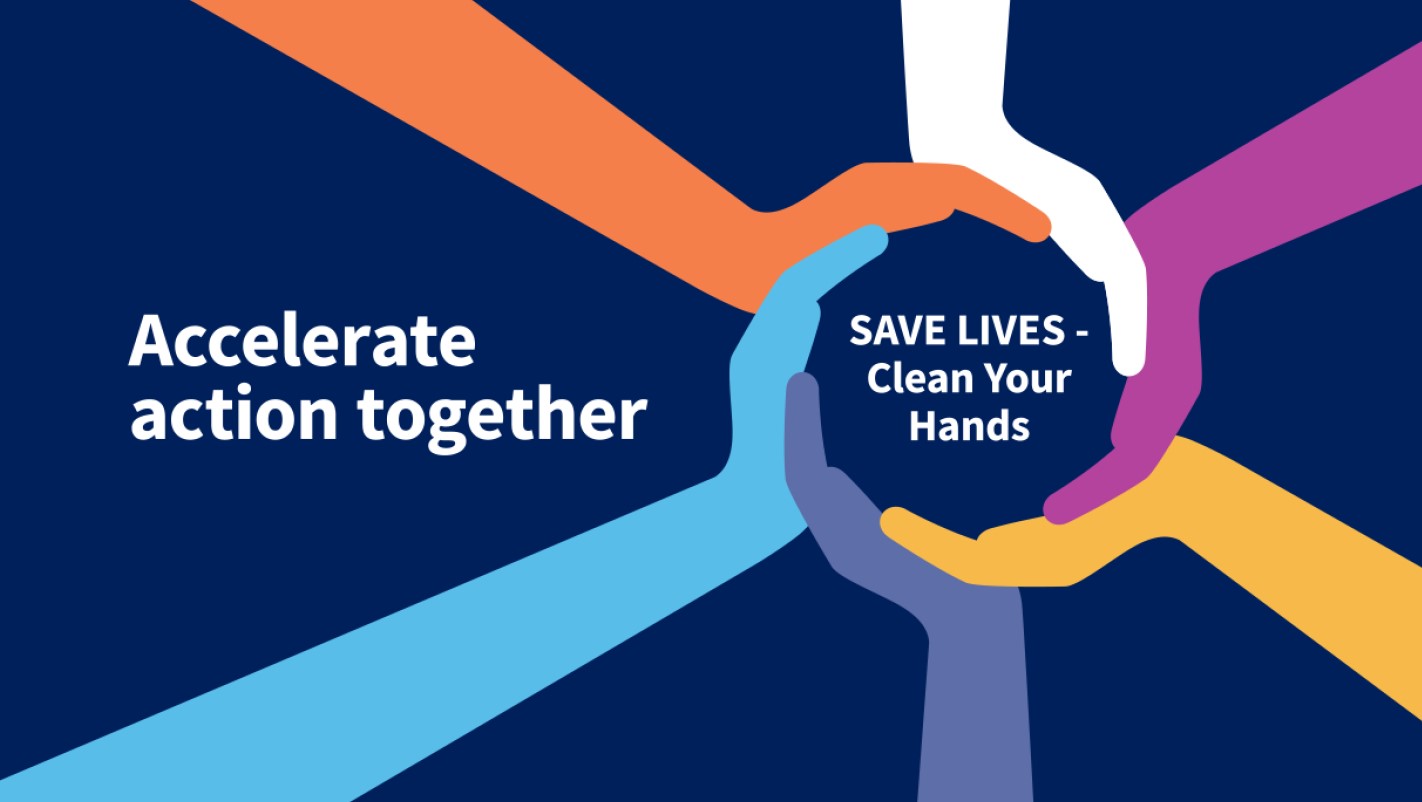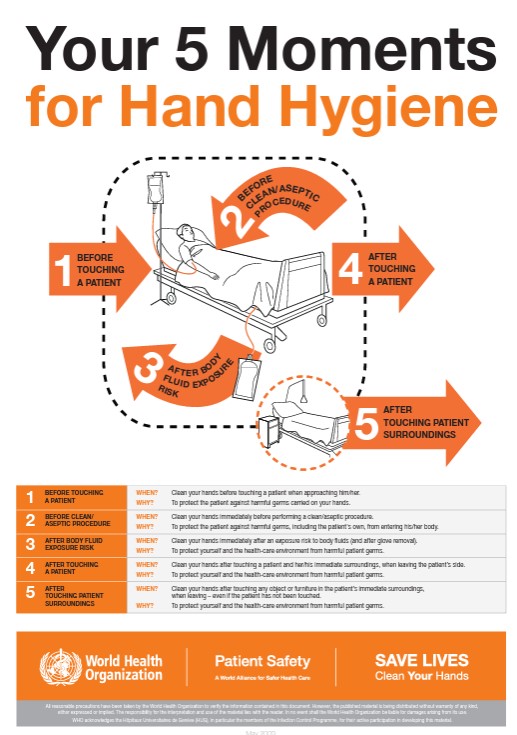Celebrate World Hand Hygiene Day on 5 May to embed simple safety and quality practices that save lives.
A WHO Global Report on Infection Prevention and Control in 2022, found that for every 100 patients in acute-care hospitals, seven patients in high-income countries and 15 patients in low- and middle-income countries will contract at least one healthcare-associated infection (HAI) during their hospital stay.
On average, 1 in every 10 affected patients will die from their HAI, with people in intensive care and newborns being particularly at risk.
The report also showed that where good hand hygiene and other cost-effective practices are followed, 70% of those infections can be prevented.
World Hand Hygiene Day on 5 May seeks to celebrate good practices and embed a culture of safety and quality within health centres. It reminds health professionals of the need to clean their hands at the right times and with the right products.
For World Hand Hygiene Day 2023, WHO is focusing on the ability of civil society organisations (CSOs), like WFSA Member Societies, to spearhead and accelerate change at local, national and international levels.
WHO is calling on all CSOs and other partner organizations to engage with the campaign and accelerate progress in achieving effective hand hygiene at the point of care.
Anaesthesia professionals play a vital role in minimizing risk by limiting the transmission of infectious flora through hand hygiene and clean workspaces, alongside ensuring appropriate and timely use of antibiotics.
With anaesthesiologists’ focus on patient safety, hand hygiene and its importance in reducing perioperative infection is fundamental to the speciality.
The importance of World Hand Hygiene Day is underlined by the number of studies which have shown hand hygiene compliance scores within anaesthesia are persistently low. (Krediet et al 2011; Jeanes et al 2018 ; Rupasingha et al 2015 etc. )
The complexity of the multiple operative and perioperative roles that anaesthesiologists have to play, allied with the regular contact that they have with patients throughout their treatment cycle, makes infection prevention and control programmes both difficult to uniformly adhere to and incredibly important for patient outcomes.
Through WFSA’s work with WHO’s Global Patient Safety Network and the Infection and Prevention Control Hub, WFSA Member Societies are working with the WHO to strengthen the evidence base and develop IPC standards and toolkits which will make tangible impacts on the well-being of patients worldwide.
IPC resources
- ATOTW 116: The Prevention of Hospital Acquired Surgical Site Infection
- WHO Infection prevention and control – hand hygiene
- Patient Safety in Anesthesia: Hand Hygiene and Perioperative Infection Control. Curr Anesthesiol Rep 12, 493–500 (2022). Simmons et al.
- Hand-hygiene practices in the operating theatre: an observational study – Krediet et al 2011 BJA 107(4)
- WHO’s Your 5 moments for hand hygiene







